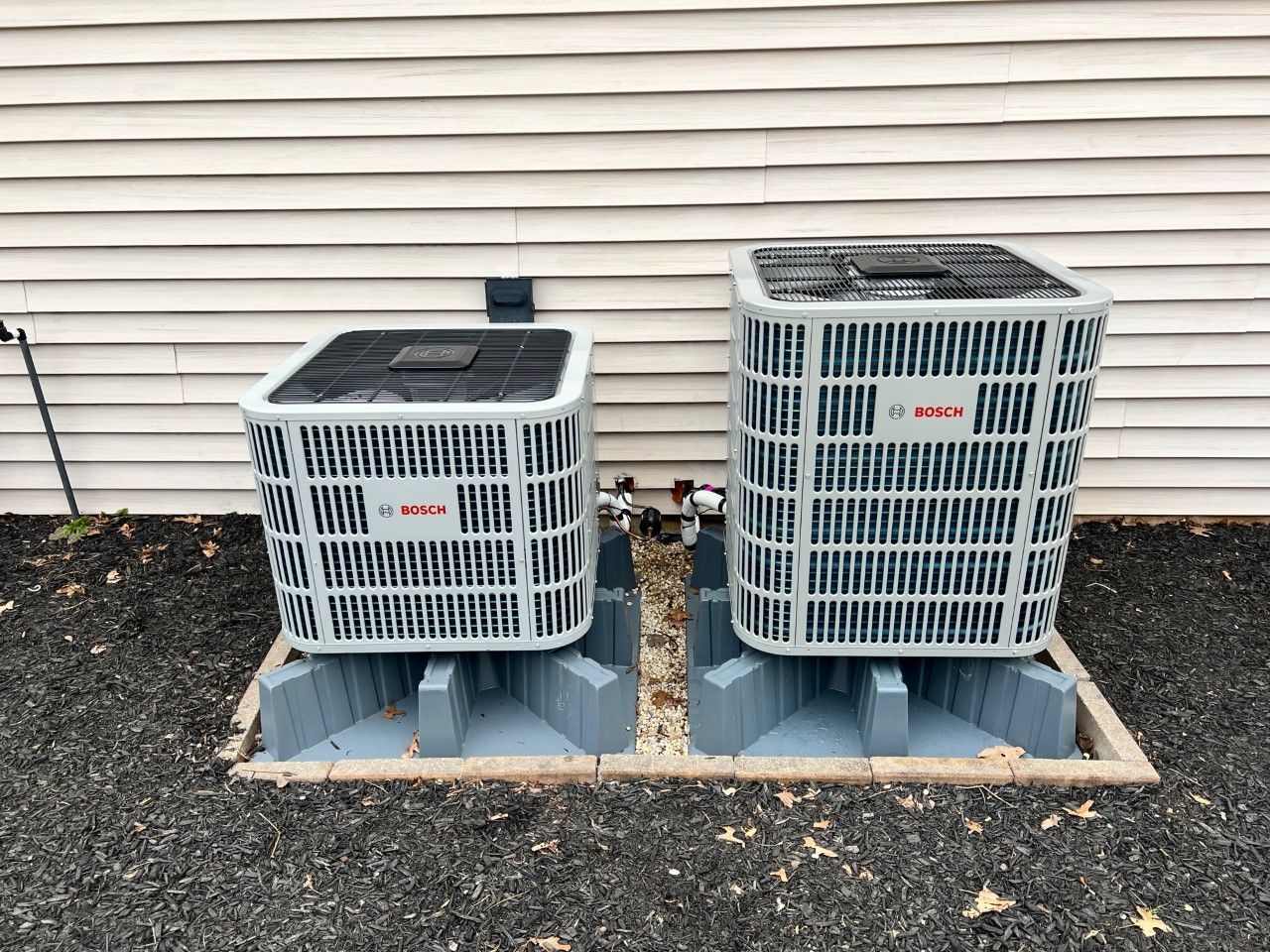BLOGS
The Impacts of Heavy Rainfall on HVAC Equipment — What Homeowners Need to Know
As climate patterns shift and extreme weather events become more frequent, many homeowners are seeing an increase in heavy rainfall and flash floods. While your HVAC system might not be the first thing you think about during a storm, prolonged or intense rainfall can cause significant damage to your heating, ventilation, and air conditioning equipment. Understanding how heavy rain affects your system—and how to protect it—can save you thousands of dollars in repairs or replacements.
How Heavy Rainfall Affects HVAC Equipment
1. Flooding and Water Damage
The most obvious risk heavy rainfall poses is flooding. Outdoor HVAC units, particularly air conditioning condensers and heat pumps, are usually built to withstand rain. However, when water accumulates and floods the area, it can:
- Submerge electrical components, leading to short circuits and corrosion
- Damage refrigerant lines or condenser coils
- Cause permanent damage to the compressor
Even indoor components like furnaces or air handlers located in basements can be compromised if floodwater enters the home.
2. Soil Erosion and Unstable Ground
When the ground becomes saturated, the soil beneath your HVAC unit can shift. This can cause:
- Your outdoor unit to become unlevel, which reduces its efficiency and may cause strain on internal components
- Concrete pads to crack or sink, affecting drainage and increasing exposure to water
- Increased vibration and noise during operation
3. Blocked Airflow and Debris Accumulation
Heavy rain often brings debris like leaves, twigs, and mud. This can clog the air intake and exhaust vents of your HVAC system, leading to:
- Reduced efficiency
- Poor air quality inside the home
- Overheating or system shutdowns due to restricted airflow
4. Electrical Hazards
Wet conditions combined with exposed electrical connections create serious safety risks. A flooded or water-damaged unit may develop shorts or grounding issues, posing a fire hazard or risk of electrocution.
Preventive Measures to Protect Your HVAC System
Luckily, there are several steps homeowners can take to reduce the risk of rain-related damage to their HVAC systems:
1. Elevate Outdoor Units
Install your outdoor condenser or heat pump on a raised platform to keep it above potential flood levels. This is especially important if you live in a flood-prone area.
2. Ensure Proper Drainage
Keep the area around your HVAC unit clear of debris and ensure water drains away from the system. Gutters, downspouts, and landscaping should direct rainwater away from the equipment.
3. Install a Protective Cover
While the unit needs ventilation, a temporary rain guard or all-weather cover can help shield the equipment from direct rainfall and debris—especially during storms. Just be sure to remove covers before operation to avoid overheating.
4. Schedule Routine Maintenance
Regular inspections and maintenance by a qualified technician can catch vulnerabilities early. Technicians can check for issues like deteriorating seals, rust, and poor drainage before they turn into major problems.
5. Shut Off Power if Flooding Occurs
If you suspect your HVAC system has been submerged or exposed to floodwater, turn off power at the breaker and contact a professional before attempting to operate it. Running a water-damaged unit can lead to irreversible damage and serious safety hazards.
Conclusion
Heavy rainfall can take a serious toll on HVAC systems if the proper precautions aren't in place. As severe weather becomes more common, proactive planning and regular maintenance are essential. By understanding the risks and implementing protective measures, homeowners can ensure their HVAC systems remain safe, efficient, and long-lasting—even through stormy weather.
Leave a Reply
Your email address will not be published. Required fields are marked *
Comment
Search
Recent Post
Recent Comments
Mary Baskerville on The Hidden Rewards of Regular HVAC Maintenance and Service Contracts
Reginald Kaiser on Harnessing Earth’s Energy: The Wonders of Geothermal Heating and Air Conditioning
Categories
AC
Air Quality
Air source heat pump
Boiler
condenser
Furnace
Geothermal
Heating
HVAC
indoor comfort
Installation of AC
Insulation
Maintenance
Technology
Uncategorized
Recent Post



